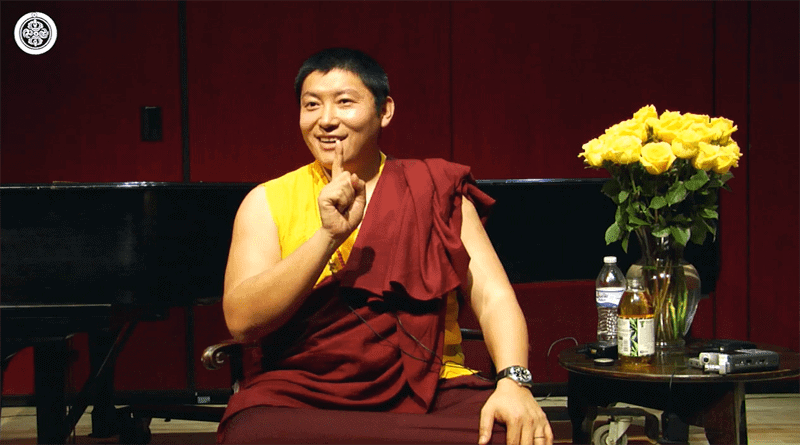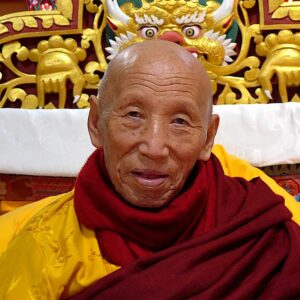Deepening Rhythm
Rhythm can develop into a deeper practice as we learn to add more complexity. In the second part of this talk, Phakchok Rinpoche explains how we may continue to develop our practice over time. How can we analyze with more clarity? How can we examine our usual rhythm and transform it into something more healthy?
Five Finger Reminder
Rinpoche uses the five fingers of our hand to represent the five negative thoughts or five negative emotions:
1. The thumb represents anger
2. The index finger represents pride
3. The middle finger represents jealousy
4. The ring finger represents attachment
5. The pinky finger represents blind spots
Anger can manifest as shouting, yelling, beating, or hitting, which is pretty obvious. Or it can manifest as writing nasty emails or posting angry words on social media. But anger can also be expressed without any words. We all know that people can convey anger without a single word by a gesture or just with their facial expressions. So anger is not just one thing: it is many small, tiny incidents. And when we are angry, are we happy? Of course not! We “burn” ourselves with our own anger as we lash out at others. Then we may start to hate ourselves as well.
Rinpoche says that he speaks from experience since he was angry as a young man. But he noticed that aspect and knew he wanted to improve. So he used the techniques he taught in the first part of this teaching. He created space, then he focused on his breath. And then he reflected on how his anger arose and what it did to him.
Pride can be based upon looks, education, wealth, family, or many other things. Pride is also very situational. It depends upon where we are and who we are with. Pride means we look down on others.
Jealousy burns us internally. It means we are not happy inside. Watch it carefully. It often accompanies our attachments and it is not healthy. Don’t misunderstand. A little competitive mind is good because it brings the desire to improve. But jealousy burns us and doesn’t make us work harder.
Attachment means “holding.” We are attached to our things, our name, and ourselves. Often it is not the things that really matter, but how we hold on to things as “mine.” Then if something goes wrong or we lose or damage “our” things, we feel pain. It is not the thing that is the problem. It is the holding on that causes unhappiness.
Blind spots. What does that mean? It means not acknowledging our own errors. We create so much unhappiness because we don’t acknowledge our weaknesses. We need to know what we need to improve.
Applying Practice
Rinpoche then demonstrates how we apply these practices. He says that this brings the sense of rhythm, conviction, and confidence that we are changing. And then with that rhythm, we develop self-respect. He asks us to please practice and then we will experience that transformation. We can become genuine, sincere, and fearless!
But we really must practice. We can’t just listen to a talk and leave it there. That would be worthless. Please give some time to this just like a physical exercise, working on a relationship, or working at a job.
More Teachings
- Overcoming Ego and Judgmental Mind
- Creating Space in Daily Life
- Truly Understanding the Five Poisons










Responses
This is a CLASSIC PKR teaching! I am so happy that it has been recorded and is being shared with others. This teaching is a must see for anyone who is starting off on the spiritual path. It is a direct look at some of the emotions we have. Some emotions are low intensity yet more consistent while others are high bursts yet few and far in between. Knowing what to do when the emotion arises is key and Rinpoche goes over this beautifully.